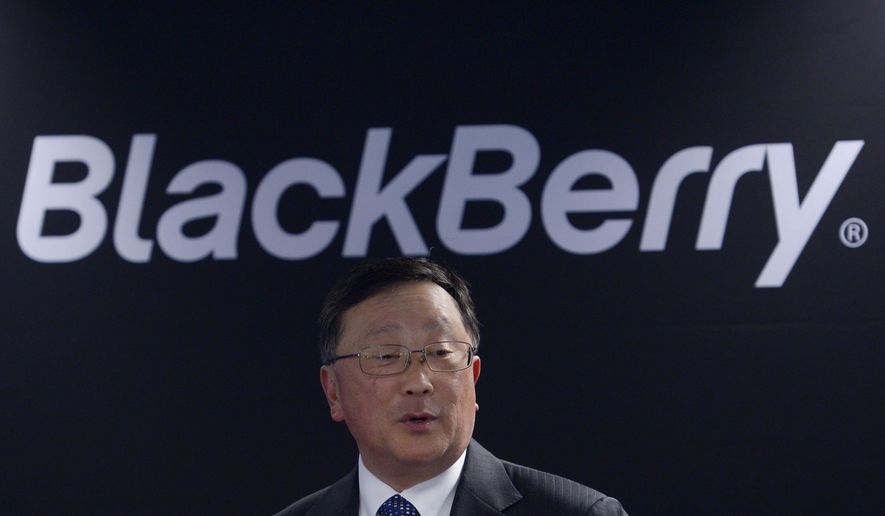Apple neglected its “basic civil responsibility” when it refused to decrypt data from San Bernardino mass shooter Syed Farook’s iPhone, BlackBerry’s top executive said Tuesday.
Speaking at the BlackBerry Security Summit in New York, CEO John Chen said he was unnerved by the way competing phone maker Apple acted when approached by the FBI for assistance earlier this year.
“One of our competitors, we call it ‘the other fruit company,’ has an attitude that it doesn’t matter how much it might hurt society, they’re not going to help,” Mr. Chen said when asked about responding to government requests for user data.
“I found that disturbing as a citizen. I think BlackBerry, like any company, should have a basic civil responsibility. If the world is in danger, we should be able to help out,” he added.
Mr. Chen’s latest comments may have been his most recent remarks directed at Apple, but they was hardly the first time he set his sights on the iPhone maker. Amid the heated debate between Apple and the FBI earlier this year, Mr. Chen penned a blog post stating: “We are indeed in a dark place when companies put their reputations above the greater good.”
“We reject the notion that tech companies should refuse reasonable, lawful access requests,” he wrote in April. “Just as individual citizens bear responsibility to help thwart crime when they can safely do so, so do corporations have a responsibility to do what they can.”
The dispute between Apple and the FBI dates back to December 2015 when Farook and his wife, Tashfeen Malik, killed 14 people and injured 22 others during an armed rampage in San Bernardino, California, before dying in a shoot-out with police.
Authorities were able to acquire an iPhone 5c owed by Farook, but took Apple to court when investigators were unable to bypass security mechanisms that initially made it impossible to access the shooter’s data.
Investigators eventually unlocked Farook’s iPhone after acquiring the services of third-party hackers, but not before reigniting a national debate surrounding the intersection of privacy and security in the modern age.
Despite having gained access already to the iPhone in question, last week Senate Armed Services Committee Chairman John McCain, Arizona Republican, threatened to subpoena Apple CEO Tim Cook after he failed to voluntarily attend an encryption hearing on Capitol Hill.
“This is unacceptable,” Mr. McCain said of Mr. Cook’s failure to appear. “This committee extended an invitation to Apple CEO Tim Cook to offer his perspective on these important issues. He declined. I hope he will reconsider in the future so that this committee can benefit from the widest possible variety of perspectives.”
Along with other members of the House and Senate, Mr. McCain has weighed the possibility of passing legislative efforts in the wake of the San Bernardino attack that would legally require companies to assist investigators with accessing data, including communications secured by strong end-to-end encryption, like those sent through Apple’s iMessage service.
Weighing in at Tuesday’s event in Manhattan, Mr. Chen admitted that “encryption tech has now gotten to the point where nobody has the ability to get the content,” but he raised concerns regardless about efforts in Congress intended to turn the tide.
“There’s proposed legislation in the U.S., and I’m sure it will come to the EU, that every vendor needs to provide some form of a back door. That is not going to fly at all. It just isn’t,” he said.
• Andrew Blake can be reached at ablake@washingtontimes.com.




Please read our comment policy before commenting.